‘If the conflict keeps going like this, we will face a catastrophe’
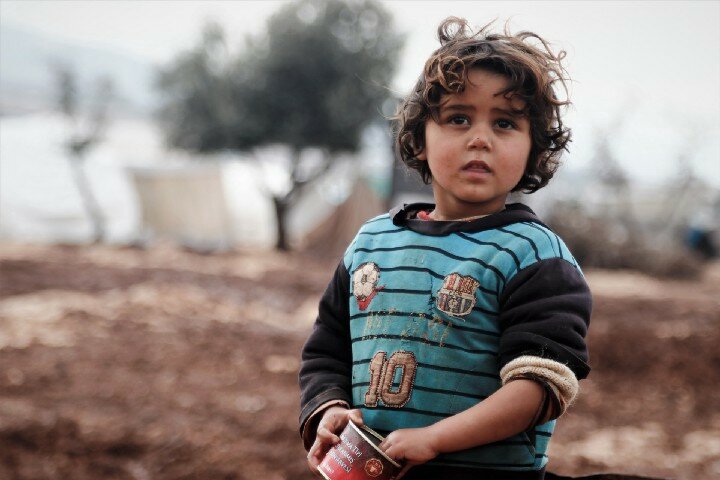
"If the conflict keeps going on like this, we will face a catastrophe.
This situation is very painful for all of us who are working in Idlib. At the end of the day you want to go to sleep satisfied that you did all that you could to help people. But families are arriving at already over-crowded camps and they need everything — blankets, medicine, tents and, of course, food.
People are desperate and have lost hope in a better future
Over the last few weeks, we have seen families fleeing to the next village or town hoping that the fight might stop and they can go back home. They risk their lives when moving on the road and consume all their savings as the transportation fees are extremely high. When they finally arrive at the camps, they find them already crowded.
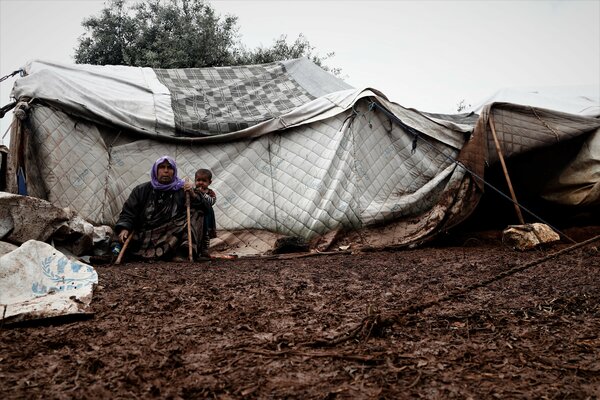
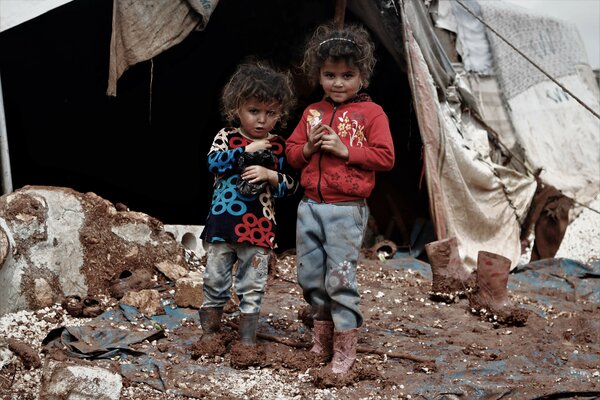
Fuel, gas and firewood prices have dramatically increased since conflict escalated and are now beyond the reach of most people. Houses for rent are hard to find and expensive.
I met a child who was not more than 11 years old. He had five biscuits and was begging people to buy them.
I recently came across a case where eight families were living together in the same house in cramped and unhealthy conditions. Families are setting up tents on rocky mountain slopes, they are burning plastic and old clothes to stay warm, and the smoke is causing breathing difficulties for some of the children.
Last week, I met a man called Adnan. I still remember his name because his family of six had travelled 70 km from Ma'saran on a motorbike with nothing else. The bike is the last thing they own. No one would do such a thing unless it was their last chance to survive. We had to act fast in order to find them a tent and some mattresses and blankets in addition to some food.
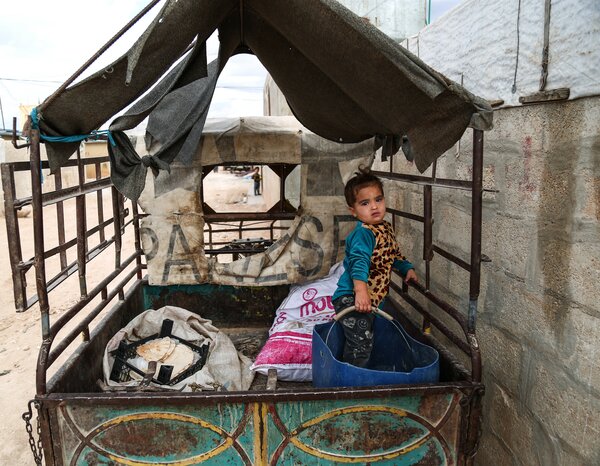
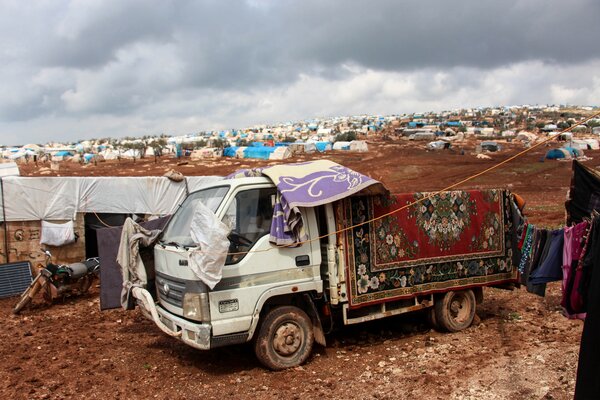
I have two children, so when we arrive at a camp to distribute food assistance, I always make sure the children are the first priority. I met a child who was not more than 11 years old. He had five biscuits and was begging people to buy them. People are desperate and have lost hope in a better future, they endure what is happening in silence.
I hope that the first thing I hear when I wake up tomorrow is that there is peace in Syria
The work we do is very important, and yet it is not enough. I hope that the first thing I hear when I wake up tomorrow is that there is peace in Syria and families no longer have to endure this painful displacement and they can all return back to their homes and start new lives."
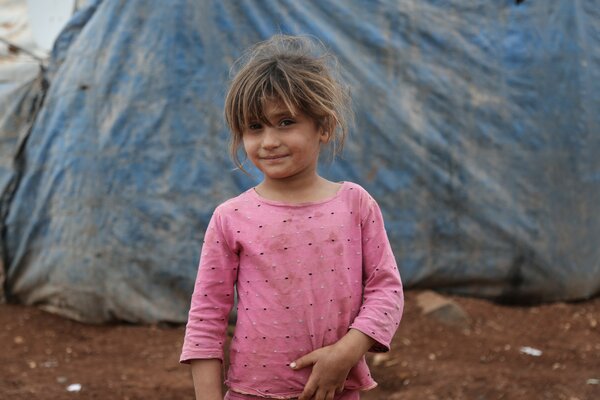
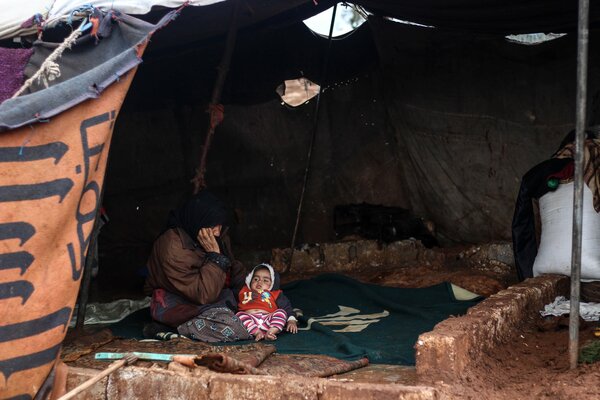
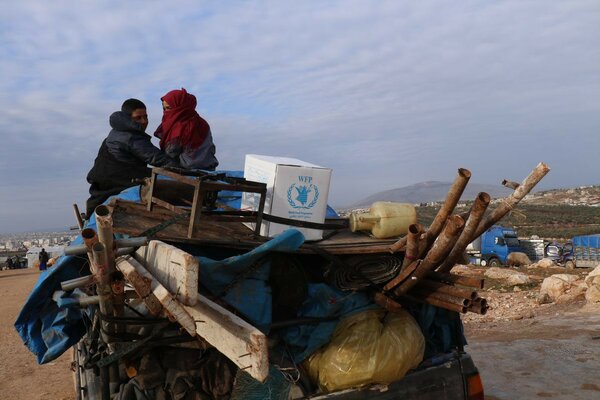
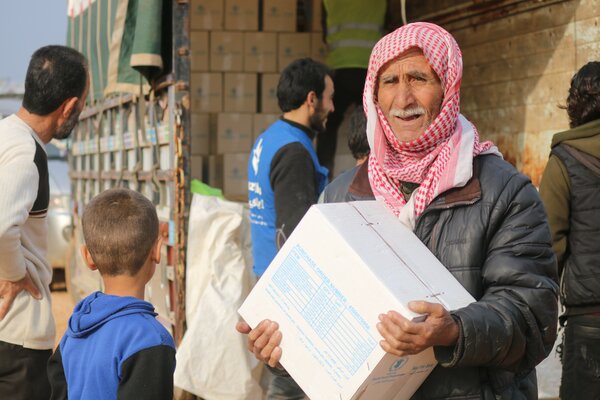
The World Food Programme (WFP) is working with partners in Idlib and across the northwest. So far it has provided life-saving assistance to 1.2 million people, more than 80 percent of whom are women and children. Seventy five percent of Syrians currently live in poverty, and 7.9 million people are food insecure (a 22 percent increase in just one year). Unless peaceful solutions are found, many more people will pay the price for ongoing conflict. Access routes must remain open so WFP and our partners can continue to reach people in immense need.
